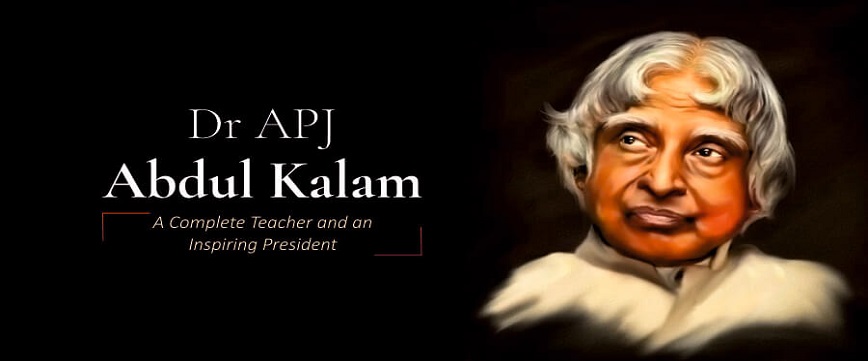
Indian scientist and politician A.P.J. Abdul Kalam in full Avul Pakir Jainulabdeen Abdul Kalam was born on October 15th 1931 in Rameswaram, India and passed away on July 27th 2015 in Shillong, India. He served as the president of India from 2002 to 2007 and contributed to the development of India’s missile and nuclear weapons programs during his presidency.
Kalam earned a degree in aeronautical engineering from Madras Institute of Technology and joined the Defence Research and Development Organisation (DRDO) in 1958. In 1969, he moved to the Indian Space Research Organisation where he was project director of SLV-III, the first satellite launch vehicle designed and produced in India. Rejoining DRDO in 1982, Kalam planned the program that produced a series of successful missiles and earned him the nickname "Missile Man." Of these successes was Agni, India's first intermediate-range ballistic missile which incorporated aspects of SLVIII.
From 1992 to 1997, Kalam was scientific adviser to the defense minister, and he later served as principal scientific adviser (1999-2001) to the government with the rank of cabinet minister. His firm position on India's 1998 nuclear weapons tests solidified India as a nuclear power and established Kalam as a national hero.
Most notably, it caused international concern. Later in 1998, Kalam put forward his Technology Vision 2020 plan, which he described as a roadmap for transforming India from one that was less developed than other countries into one that became more developed. The plan called for numerous measures meant to increase agricultural production and prioritize technology as an economic driver.
Check out all the facts about the life of your favorite personalities.
Find the best biographies of all time. Click here to know more about Vikram Sarabhai-Biography, History, Wife, Kids, Death, invention & Ram Prasad Bismil Biography, History, freedom Fighter, Slogan, Poems, Facts.
From 1992 to 1997, Kalam was scientific adviser to the defense minister, and he later served as principal scientific adviser (1999-2001) to the government with the rank of cabinet minister. His firm position on India's 1998 nuclear weapons tests solidified India as a nuclear power and established Kalam as a national hero. Most notably, it caused international concern. Later in 1998, Kalam put forward his Technology Vision 2020 plan, which he described as a roadmap for transforming India from one that was less developed than other countries into one that became more developed. The plan called for numerous measures meant to increase agricultural production and prioritize technology as an economic driver.
In 2002, the National Democratic Alliance (NDA) put forward Kalam to succeed outgoing President Kocheril Raman Narayanan. The Hindu nationalist NDA nominated him even though he was Muslim and his popularity with the Indian public made him difficult to ignore for other political parties, too. Kalam won the election easily and took office as India’s 11th president in July 2002; he left office at the end of his term 10 years later in 2007 and was succeeded by Pratibha Patil, the country’s first woman president.
After returning to civilian life, Kalam continued to strive for a developed and modern India. He served as a lecturer at several universities, primarily Indian Institute of Management Shillong. On July 27, 2015, he collapsed while delivering a lecture and died from cardiac arrest soon afterward.
Kalam wrote several books during his lifetime, including an autobiography named Wings of Fire in 1999. He won two of the country's highest honors, the Padma Vibhushan and Bharat Ratna.
Check out all the best biographies of all time click here to find the most credible information about Pandit Jawaharlal Nehru Biography, Birth Place, Images, Death, University & Swami Vivekanand Biography, College, University, Birth Place, Jayanti.
For more information visit: APJ Abdul Kalam Biography